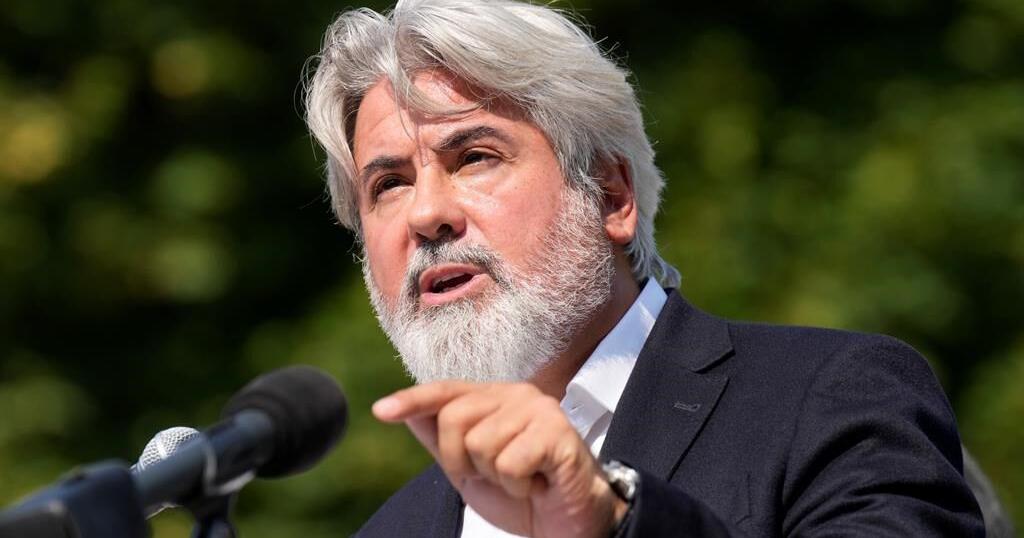As the 2024 Republican presidential field began to stir three years ago, Fox News tried to make Ron DeSantis happen. From the week of the 2020 election through February 2021, the network invited DeSantis to appear 113 times, or almost once a day, according to the Tampa Bay Times. In an email uncovered by that newspaper, one Fox producer gushed to a member of DeSantis’s staff, “We see him as the future of the party.”
Maybe, but the future isn’t now. After that early burst of attention, the DeSantis bandwagon never got out of the garage. DeSantis’s national support crested at about 30 percent in early 2023 before slipping to less than half that figure. His presidential campaign will be lucky to survive beyond an expected pounding in tomorrow’s Iowa caucus and further humiliation in the New Hampshire primary. That has much to do with his charisma-free persona and his party’s devotion to Donald Trump, but it also reveals something about Fox’s vaunted power to shape Republican politics—namely, that it’s a myth.
For at least two decades, Fox’s alleged Svengali-like control of Republican voters has been an article of faith among academics and in much of the mainstream media. One 2017 study in the American Economic Review, for example, suggested that Fox alone could explain the entire increase in American political polarization from 2000 to 2008, a stunning conclusion given the complicated dynamics at play among tens of millions of voters. Fox is, of course, indispensable as a platform for Republican candidates and conservative talking points. It has predictably savaged the Democratic candidate in every election since Rupert Murdoch and Roger Ailes launched the network in 1996. It has also helped promote a smorgasbord of conservative culture-war memes, such as the “War on Christmas,” dubious COVID cures, and attacks on critical race theory. And yet, for all its cultural clout and Nielsen dominance, Fox has never been able to direct the course of Republican electoral politics.
In 2008, Ailes and his network briefly swooned over Mike Huckabee, the genial former governor of Arkansas, an evangelical minister who was perhaps the most conservative candidate in the field. Huckabee won the Iowa caucus in an upset, but his campaign petered out soon after. Republicans instead chose John McCain as their nominee. (Huckabee went on to host a Fox show.) Murdoch went all in on Rick Santorum in 2012 (“Only candidate with genuine big vision for country,” he tweeted at one point); Santorum, a longtime Fox contributor, also won Iowa in an upset, but faded like Huckabee thereafter. Republicans went for Mitt Romney instead. In the interim, Fox tried and failed to resurrect Sarah Palin as a national figure, keeping her on the payroll as a talking head for five years. Even during the Trump boom in the 2016 cycle, Fox was arguably more favorable to Ted Cruz until Cruz finally capitulated, late in the primaries. Only at that point did Fox fully embrace Trump. (The most influential Trump media booster, arguably, was CNN, which turned over enormous blocks of airtime to the flaming spectacles that were his rallies.)
Whichever candidate Fox News might support at the outset of a primary, it reliably comes to support the eventual Republican nominee. This suggests that it’s less a kingmaker than a courtier, pledging support to those already on the throne. Rather than influencing its viewers, it is influenced by them. There is no clearer example of this dynamic than the financial and journalistic debacle that was the Dominion Voting Systems defamation lawsuit. Fox’s parent company paid $787.5 million to settle Dominion’s claims that Fox had smeared the company by alleging that its election hardware had flipped votes from Trump to Joe Biden in 2020. Depositions showed that Fox’s top personalities and executives, including Murdoch, were well aware that Dominion wasn’t at the center of a conspiracy to cheat Trump out of reelection, even as Fox hosts and guests continued to say so on the air.
The now-obvious reason: Fox’s leaders feared that their audience would light out for other, even more strident TV networks if Fox didn’t keep hammering Dominion. This was not irrational. Incensed that Fox had called the election for Biden, Trump encouraged his supporters to abandon the network. “The great @FoxNews daytime ratings CRASH will only get worse!” he tweeted two weeks after Election Day. The previously obscure Newsmax network began to surge, propelled by its unalloyed Trump sycophancy. “We’re here to stay,” crowed the network’s CEO, Christopher Ruddy, to CNN at the time. “The ratings are showing that.” This proved premature. After Fox recommitted to Trump’s Big Lie, its ratings rebounded. The lesson was obvious: Fox holds less sway over its audience than its audience holds over Fox. The viewers demanded that their delusions be catered to. Fox, chasing ratings, complied. (This dynamic recently prompted Ron DeSantis, of all people, to complain, of Fox and Trump, “They don’t hold him accountable because they’re worried about losing viewers.”)
Even unwavering devotion to Trump may not save Fox from larger, structural issues. Neither of the network’s new prime-time hosts, Greg Gutfeld and Jesse Watters, draws the same audience that Bill O’Reilly or Tucker Carlson did. Fox remains the top cable network overall, but its ratings are in broad decline. Cable-news viewing tends to be cyclical, peaking in election years and declining in off years. Last year was one such off year, but the ratings losses were so steep that they look less like a traditional dip than a piano plummeting from a tall building. Fox’s audience dropped 18 percent overall, to its lowest figure in eight years, and prime-time viewing fell 20 percent—hurt, in part, by the still largely unexplained firing of Tucker Carlson in April. Even with important global and domestic news—wars in Ukraine and the Middle East, the ongoing drama over the House speaker, the beginning of primary season—the trend line hasn’t been favorable. The most terrifying statistic surely must be the flight of viewers between the ages of 25 and 54, whom advertisers pay premium rates to reach. Fox lost 35 percent of that demographic last year compared with 2022.
Things are more likely to get worse than improve, even with the pick-me-up of an election year. Cord-cutting may have reached a tipping point in 2023. Cable- and satellite-TV operators such as Comcast/Xfinity and DirecTV lost millions of customers to streaming networks and aggregators like YouTube and Roku, driving household use of traditional pay-TV services below 50 percent for the first time in decades. (As recently as 2017, the figure was 73 percent.) The industry appears to be in a doom loop, raising prices to offset falling subscriptions, which triggers more subscription cancellations and more price increases.
The losses threaten the cable programmers’ most valuable asset: the billions of dollars in annual fees that they charge cable operators for the right to carry their programming. Cable news networks may be somewhat less susceptible to cord-cutting—their audiences are older and more tech-resistant, and thus less likely to cancel—but they’re not immune. With each new political cycle, Fox faces a more complicated conservative mediasphere populated by upstart TV networks, innumerable podcasts, and right-wing social-media influencers. “The data is clear,” the media scholar Michael Socolow tweeted in November. “Fox News, MSNBC & all cable TV is collapsing in terms of widespread influence in American culture, politics and society.”
For the moment, Fox remains the leading conservative platform, with a dominant (though shrinking) TV audience and a digital operation that reached about 90 million unique visitors in November, according to Comscore. But popular doesn’t equal influential. Whatever political influence Fox possessed—if it really possessed any at all—is going, and going fast.































